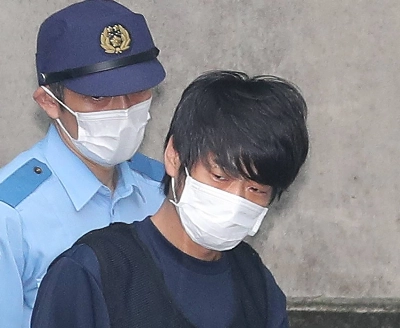Prime Minister Yoshiro Mori survived a no-confidence motion against his Cabinet early Tuesday after his rivals in the Liberal Democratic Party -- primarily Koichi Kato and Taku Yamasaki -- reneged on their pledge to support the motion submitted by the opposition camp.
The motion, proposed by the Democratic Party of Japan, the Liberal Party, the Japanese Communist Party and the Social Democratic Party, was defeated in the House of Representatives by 237 votes to 190.
Fifty-two lawmakers failed to show up for the vote. They included 21 members of the Kato faction and 17 members of Yamasaki's, including the two leaders.

















With your current subscription plan you can comment on stories. However, before writing your first comment, please create a display name in the Profile section of your subscriber account page.